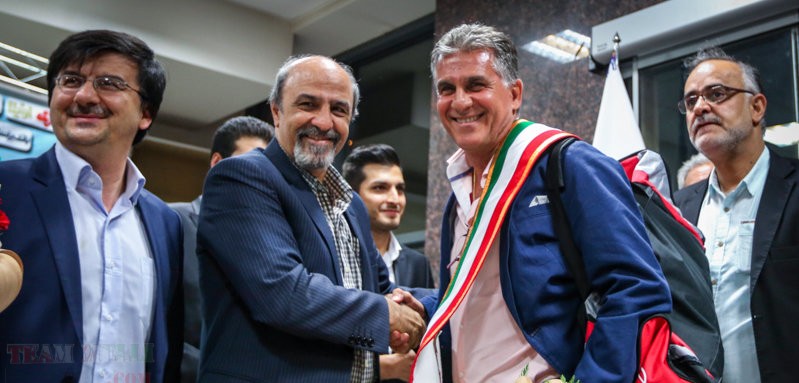In a quick and emphatic response to the repeated requests for help by FFIRI president, The Minster of Youth and Sport said “The football federation is capable of paying for the coach (Queiroz). I don’t know why in our country, whenever there is a bit of complication in some organization’s work, they always turn towards the highest posts in the government seeking help and advice. It is the job of the sport federation to decide on the coaches, run the sport, the league and all the activities. They are and have to be the sole decision makers of their sports. The federations should work independently from the government and run as NGO, we cannot interfere with their works, their budget and policies.”
“The football federation is a mature organization, it has to decide by itself which coach it wants and within its capability. It is not our (The Ministry) job to get involved in such details. We do not have personnel in the Ministry who has top expertise in football team coaching. “
“If I was asked in an advisory role if it is worth renewing the contract with Queiroz , my advise to them will be to review and analyze the work of this coach during his time in Iran. Based on a proper study covering all aspects on and off the field , then they have to base their decision on that.
When asked about the possibilities of the ministry supporting the FFIRI in paying for Queiroz , the minster responded “Today as we speak , the FFIRI is in a very good financial position after receiving the US$ 8 million from FIFA and the huge TV commercial revenues and other sources of income. The federation can and should pay for their coaches. “
Thus, the Government once and for all has categorically refused to pay the wages and contracts of the coaches selected by the football federation, putting an end to the numerous and repetitive cries for help from the incumbent Kaffashian.
Goudarzi warned about being emotional on decision making in reference to the selections of coaches. “Countries like Japan, Korea and Australia have systematic management processes. Their decision making are based on studies and data, not on emotions that can rise one day and fall the other. This can happen in Iran, as we witnessed in the during the world cup. We really need to seriously look at the results and the accomplishments. Look at where we stand in the football world and where do we want to go, before making strategic decisions. Error in decision making could be costly, not just financially either;”

